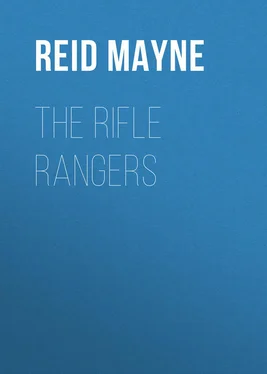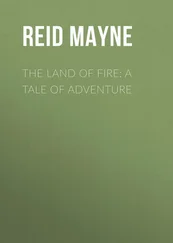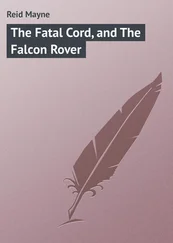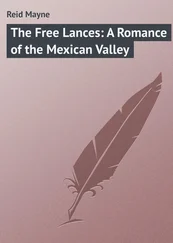Mayne Reid - The Rifle Rangers
Здесь есть возможность читать онлайн «Mayne Reid - The Rifle Rangers» — ознакомительный отрывок электронной книги совершенно бесплатно, а после прочтения отрывка купить полную версию. В некоторых случаях можно слушать аудио, скачать через торрент в формате fb2 и присутствует краткое содержание. Жанр: literature_19, foreign_antique, foreign_prose, на английском языке. Описание произведения, (предисловие) а так же отзывы посетителей доступны на портале библиотеки ЛибКат.
- Название:The Rifle Rangers
- Автор:
- Жанр:
- Год:неизвестен
- ISBN:нет данных
- Рейтинг книги:5 / 5. Голосов: 1
-
Избранное:Добавить в избранное
- Отзывы:
-
Ваша оценка:
- 100
- 1
- 2
- 3
- 4
- 5
The Rifle Rangers: краткое содержание, описание и аннотация
Предлагаем к чтению аннотацию, описание, краткое содержание или предисловие (зависит от того, что написал сам автор книги «The Rifle Rangers»). Если вы не нашли необходимую информацию о книге — напишите в комментариях, мы постараемся отыскать её.
The Rifle Rangers — читать онлайн ознакомительный отрывок
Ниже представлен текст книги, разбитый по страницам. Система сохранения места последней прочитанной страницы, позволяет с удобством читать онлайн бесплатно книгу «The Rifle Rangers», без необходимости каждый раз заново искать на чём Вы остановились. Поставьте закладку, и сможете в любой момент перейти на страницу, на которой закончили чтение.
Интервал:
Закладка:
The ranchero leads a free, easy life, burthened with few cares. He is the finest rider in the world, following his cattle on horseback, and never makes even the shortest journey on foot. He plays upon the bandolin, sings an Andalusian ditty, and is fond of chingarito (mezcal whisky) and the “fandango.”
Such is the ranchero of the tierra caliente around Vera Cruz, and such is he in all other parts of Mexico, from its northern limits to the Isthmus.
But in the tierra caliente you may also see the rich planter of cotton, or sugar-cane, or cocoa ( cacao ), or the vanilla bean. His home is the “hacienda”. This is a still livelier picture. There are many fields inclosed and tilled. They are irrigated by the water from a small stream. Upon its banks there are cocoa-trees; and out of the rich moist soil shoot up rows of the majestic plantain, whose immense yellow-green leaves, sheathing the stem and then drooping gracefully over, render it one of the most ornamental productions of the tropics, as its clustering legumes of farinaceous fruit make it one of the most useful. Low walls, white or gaily painted, appear over the fields, and a handsome spire rises above the walls. That is the “hacienda” of the planter – the “rico” of the tierra caliente , with its out-buildings and chapel belfry. You approach it through scenes of cultivation. “Peons”, clad in white cotton and reddish leathern garments, are busy in the fields. Upon their heads are broad-brimmed hats, woven from the leaf of the sombrero palm. Their legs are naked, and upon their feet are tied rude sandals ( guarachés ) with leathern thongs. Their skins are dark, though not black; their eyes are wild and sparkling; their looks grave and solemn; their hair coarse, long, and crow-black; and, as they walk, their toes turn inward. Their downcast looks, their attitudes and demeanour, impress you with the conviction that they are those who carry the water and hew the wood of the country. It is so. They are the “Indios mansos” (the civilised Indians): slaves, in fact, though freemen by the letter of the law. They are the “peons”, the labourers, the serfs of the land – the descendants of the conquered sons of Anahuac.
Such are the people you find in the tierra caliente of Mexico – in the environs of Vera Cruz. They do not differ much from the inhabitants of the high plains, either in costume, customs, or otherwise. In fact, there is a homogeneousness about the inhabitants of all Spanish America – making allowance for difference of climate and other peculiarities – rarely found in any other people.
Before daybreak of the morning after my interview with the “swearing major”, a head appeared between the flaps of my tent. It was that of Sergeant Bob Lincoln.
“The men air under arms, Cap’n.”
“Very well,” cried I, leaping from my bed, and hastily buckling on my accoutrements.
I looked forth. The moon was still brightly shining, and I could see a number of uniformed men standing upon the company parade, in double rank. Directly in front of my tent a small boy was saddling a very small horse. The boy was “Little Jack”, as the soldiers called him; and the horse was little Jack’s mustang, “Twidget.”
Jack wore a tight-fitting green jacket, trimmed with yellow lace, and buttoned up to the throat; pantaloons of light green, straight cut, and striped along the seams; a forage-cap set jauntily upon a profusion of bright curls; a sabre with a blade of eighteen inches, and a pair of clinking Mexican spurs. Besides these, he carried the smallest of all rifles. Thus armed and accoutred, he presented the appearance of a miniature Ranger.
Twidget had his peculiarities. He was a tight, wiry little animal, that could live upon mezquite beans or maguey leaves for an indefinite time; and his abstemiousness was often put to the test. Afterwards, upon an occasion during the battles in the valley of Mexico, Jack and Twidget had somehow got separated, at which time the mustang had been shut up for four days in the cellar of a ruined convent with no other food than stones and mortar! How Twidget came by his name is not clear. Perhaps it was some waif of the rider’s own fancy.
As I appeared at the entrance of my tent, Jack had just finished strapping on his Mexican saddle; and seeing me, up he ran to assist in serving my breakfast. This was hastily despatched, and our party took the route in silence through the sleeping camp. Shortly after, we were joined by the major, mounted on a tall, raw-boned horse; while a darkie, whom the major addressed as “Doc”, rode a snug, stout cob, and carried a large basket. This last contained the major’s commissariat.
We were soon travelling along the Orizava road, the major and Jack riding in advance. I could not help smiling at the contrast between these two equestrians; the former with his great gaunt horse, looming up in the uncertain light of the morning like some huge centaur; while Jack and Twidget appeared the two representatives of the kingdom of Lilliput.
On turning an angle of the forest, a horseman appeared at some distance along the road. The major gradually slackened his pace, until he was square with the head of the column, and then fell back into the rear. This manoeuvre was executed in the most natural manner, but I could plainly see that the mounted Mexican had caused the major no small degree of alarm.
The horseman proved to be a zambo, in pursuit of cattle that had escaped from a neighbouring corral. I put some inquiries to him in relation to the object of our expedition. The zambo pointed to the south, saying in Spanish that mules were plenty in that direction.
“ Hay muchos, muchissimos ,” (There are many), said he, as he indicated a road which led through a strip of forest on our left.
Following his direction, we struck into the new path, which soon narrowed into a bridle-road or trail. The men were thrown into single file, and marched à l’Indienne . The road darkened, passing under thick-leaved trees, that met and twined over our heads.
At times the hanging limbs and joined parasites caused the major to flatten his huge body upon the horn of the saddle; and once or twice he was obliged to alight, and walk under the impeding branches of the thorny acacias.
Our journey continued without noise, silence being interrupted only by an occasional oath from the major – uttered, however, in a low tone, as we were now fairly “in the woods”. The road at length opened upon a small prairie or glade, near the borders of which rose a “butte”, covered with chaparral.
Leaving the party in ambuscade below, I ascended the butte, to obtain a view of the surrounding country. The day had now fairly broken, and the sun was just rising over the blue waters of the Gulf.
His rays, prinkling over the waves, caused them to dance and sparkle with a metallic brightness; and it was only after shading my eyes that I could distinguish the tall masts of ships and the burnished towers of the city.
To the south and west stretched a wide expanse of champaign country, glowing in all the brilliance of tropical vegetation. Fields of green, and forests of darker green; here and there patches of yellow, and belts of olive-coloured leaves; at intervals a sheet of silver – the reflection from a placid lake, or the bend of some silent stream – was visible upon the imposing picture at my feet.
A broad belt of forest, dotted with the lifelike frondage of the palm, swept up to the foot of the hill. Beyond this lay an open tract of meadow, or prairie, upon which were browsing thousands of cattle. The distance was too great to distinguish their species; but the slender forms of some of them convinced me that the object of our search would be found in that direction.
Читать дальшеИнтервал:
Закладка:
Похожие книги на «The Rifle Rangers»
Представляем Вашему вниманию похожие книги на «The Rifle Rangers» списком для выбора. Мы отобрали схожую по названию и смыслу литературу в надежде предоставить читателям больше вариантов отыскать новые, интересные, ещё непрочитанные произведения.
Обсуждение, отзывы о книге «The Rifle Rangers» и просто собственные мнения читателей. Оставьте ваши комментарии, напишите, что Вы думаете о произведении, его смысле или главных героях. Укажите что конкретно понравилось, а что нет, и почему Вы так считаете.












